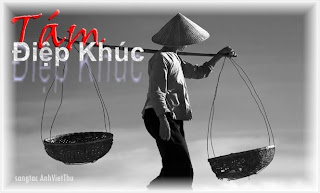Time Magazine recently interviewed His Holiness in New York City for its "10 Questions to His Holiness the Dalai Lama". Time Magazine has published the response.
Question: Do you ever feel angry or outraged? —Kantesh Guttal, PUNE, INDIA
His Holiness: Oh, yes, of course. I'm a human being. Generally speaking, if a human being never shows anger, then I think something's wrong. He's not right in the brain. [Laughs.]
Question: How do you stay so optimistic and faithful when there is so much hate in the world? —Joana Cotar, FRANKFURT
His Holiness: I always look at any event from a wider angle. There's always some problem, some killing, some murder or terrorist act or scandal everywhere, every day. But if you think the whole world is like that, you're wrong. Out of 6 billion humans, the troublemakers are just a handful.
Question: How has the role set out for you changed since you first came to be the Dalai Lama? —Andy Thomas, CARMARTHEN, WALES
His Holiness: I became the Dalai Lama not on a volunteer basis. Whether I was willing or not, I [had to study] Buddhist philosophy like an ordinary monk student in these big monastic institutions. Eventually I realized I have a responsibility. Sometimes it is difficult, but where there is some challenge, that is also truly an opportunity to serve more.
Question: Do you see any possibility of reconciliation with the Chinese government in your lifetime? —Joseph K.H. Cheng, MELBOURNE
His Holiness: Yes, there is a possibility. But I think past experience shows it is not easy. Many of these hard-liners, their outlook is very narrow and shortsighted. They are not looking at it in a holistic way. However, within the People's Republic of China, there is wider contact with the outside world. There are more and more voices of discontentment among the people, particularly among the intellectuals. Things will change — that's bound to happen.
Question: How can we teach our children not to be angry? —Robyn Rice, GRAND JUNCTION, COLO.
His Holiness: Children always look to their parents. Parents should be more calm. You can teach children that you face a lot of problems but you must react to those problems with a calm mind and reason. I have always had this view about the modern education system: we pay attention to brain development, but the development of warmheartedness we take for granted.
Question: Have you ever thought about being a normal person instead of being the Dalai Lama? —Grego Franco, MANILA
His Holiness: Yes, at a young age. Sometimes I felt, "Oh, this is a burden. I wish I was an unknown Tibetan. Then I'd have more freedom." But then later I realized that my position was something useful to others. Nowadays I feel happy that I'm Dalai Lama. At the same time, I never feel that I'm some special person. Same — we are all the same.
Question: Do you miss Tibet? —Pamela Delgado Córdoba, AGUASCALIENTES, MEXICO
His Holiness: Yes. Tibetan culture is not only ancient but relevant to today's world. After seeing the problems of violence, we realize that Tibetan culture is one of compassion and nonviolence. There is also the climate. In India during monsoon season, it is too wet. Then, I very much miss [Tibet].
Question: What do you say to people who use religion as a pretext to violence or killing? —Arnie Domingo, QUEZON CITY, PHILIPPINES
His Holiness: There are innocent, faithful people that are manipulated by some other people whose interest is different. Their interest is not religion but power or sometimes money. They manipulate religious faith. In such cases, we must make a distinction: these [bad things] are not caused by religion.
Question: Have you ever tried on a pair of trousers? —Ju Huang, STAMFORD, CONN.
His Holiness: When it's very, very cold. And particularly in 1959, when I escaped, I wore trousers, like laypeople dressed. So I have experience.
Question: Do you believe your time here on earth has been a success? —Les Lucas, KELOWNA, B.C.
His Holiness: Hmmm. That's relative. It's so difficult to say. All human life is some part failure and some part achievement.




























